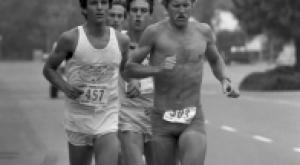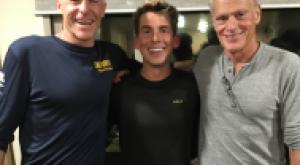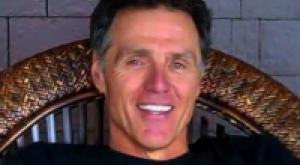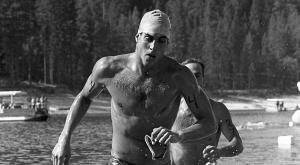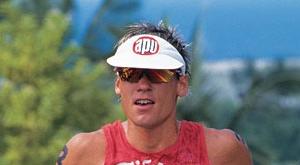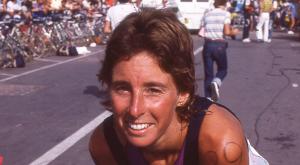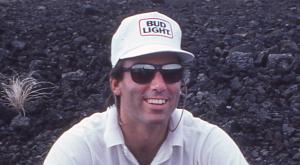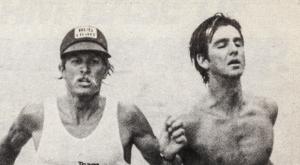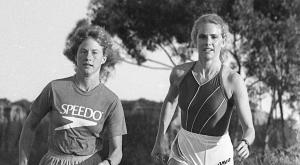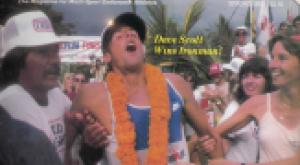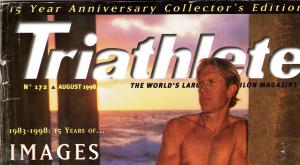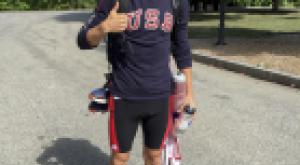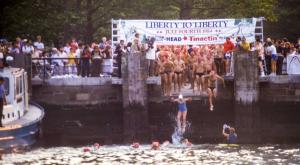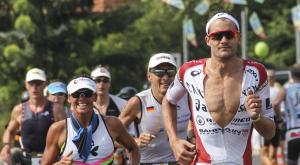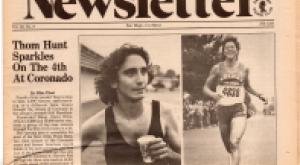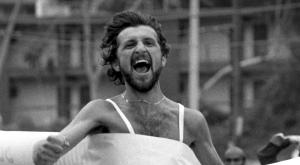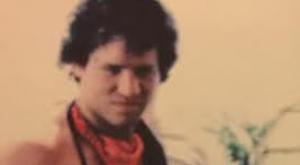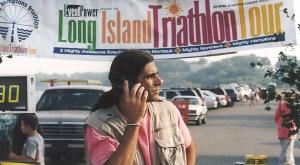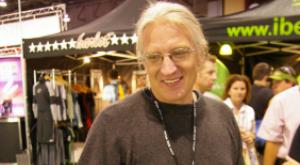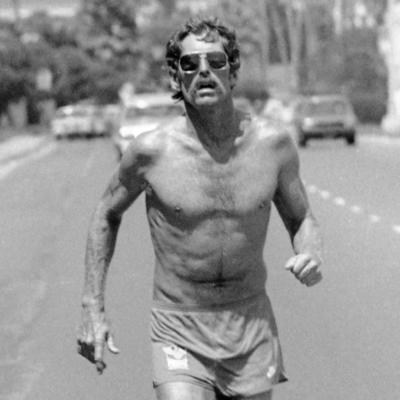
Tom Warren in the mid-80's, running on his home turf in San Diego, at the Super Frog Triathlon. The Hotel Del Coronado is in the background. Mike Plant photo
Five individuals, whose involvement spanned the breadth and length of the sport since its inception were named to the USAT Hall of Fame in March
John and Judy Collins translated the fledgling, cobbled-up sport from its muddy roots on San Diego's Fiesta Island to what would become the grand stage of the Ironman in Hawaii. The story of how Naval Commander John Collins loosed the Ironman phenomenon on the world has been widely told and mis-told; the reality is less dramatic than some tellings, but still fascinating and always crtically important to the establishment and growth of the sport.
Roman Catholic Religious Sister Madonna Buder, recognized for her long and enduring career as an age group triathlete, has completed more than 300 triathlons over the course of more than 30 years – each with the humility and goodwill one might expect from someone of her religious persuasion. Along the way she has no doubt motivated any number of individuals, young and old, to set aside doubts and take to multi-sport. The media, understandably, has loved her every step of the way.
Pro triathlete Mike Pigg announced himself to the triathlon world with a third place finish at the Bud Light USTS race in Livermore, Calif., in 1985 and was a major factor in every race he entered after that. With his family often in attendance at his races, wearing pink "Pigg Power" T-shirts, Mike Pigg was the first triathlete to consistently and successfully challenge the reign of the Big Four – Allen, Scott, Tinley and Molina – at Olympic-distance races across the country. Appropriately, his best finish at the Ironman in Kona came with a second place to his old USTS rival, Scott Molina.
The iconoclastic Tom Warren, winner of the 1979 "Iron Man" Triathlon on Ohau, personified the early days of the sport with a lifestyle and philosophy that was beholden to no preconceived notions of conformity. It was as much Warren's personality as the Iron Man itself, that turned Barry McDermott's article in Sports Illustrated that year into a cornerstone of the multisport movement. No one has every collected the wisdom of Tom Warren in a book of quotations, but someone should. "Why should you assume you should go slower when you get tired? He mused. "Why not try going faster?" And, "I don't care much to go back and try a goal after I've failed, he said. "Because I already have it figured out."


